Information and electric vehicles of the [object Object] brand
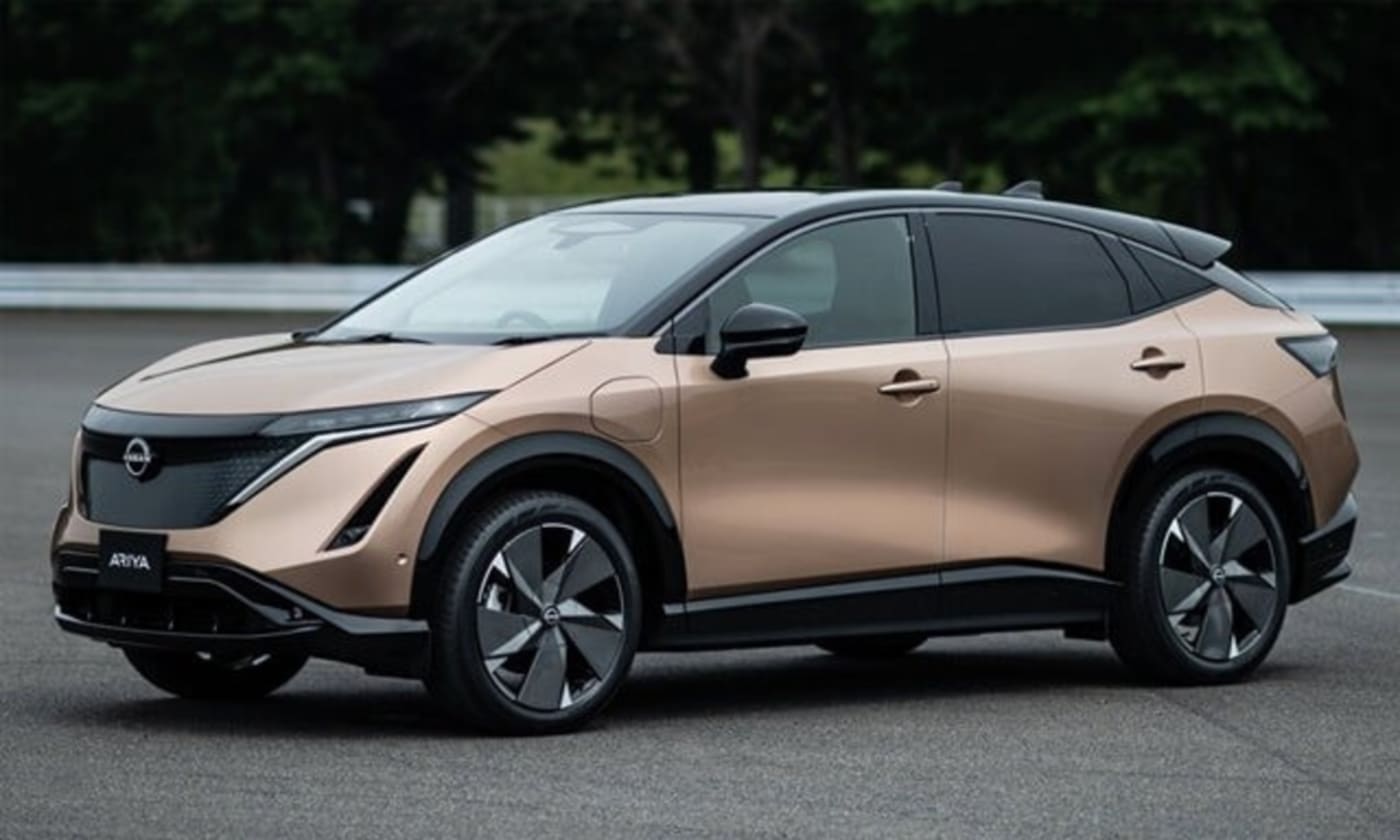
![[object Object] logo](https://res.cloudinary.com/donyiousk/image/upload/w_80/f_auto/c_scale,w_500/v1/car/xnawwe6nkkqkrfnppj0q)
Nissan
Drive the change.

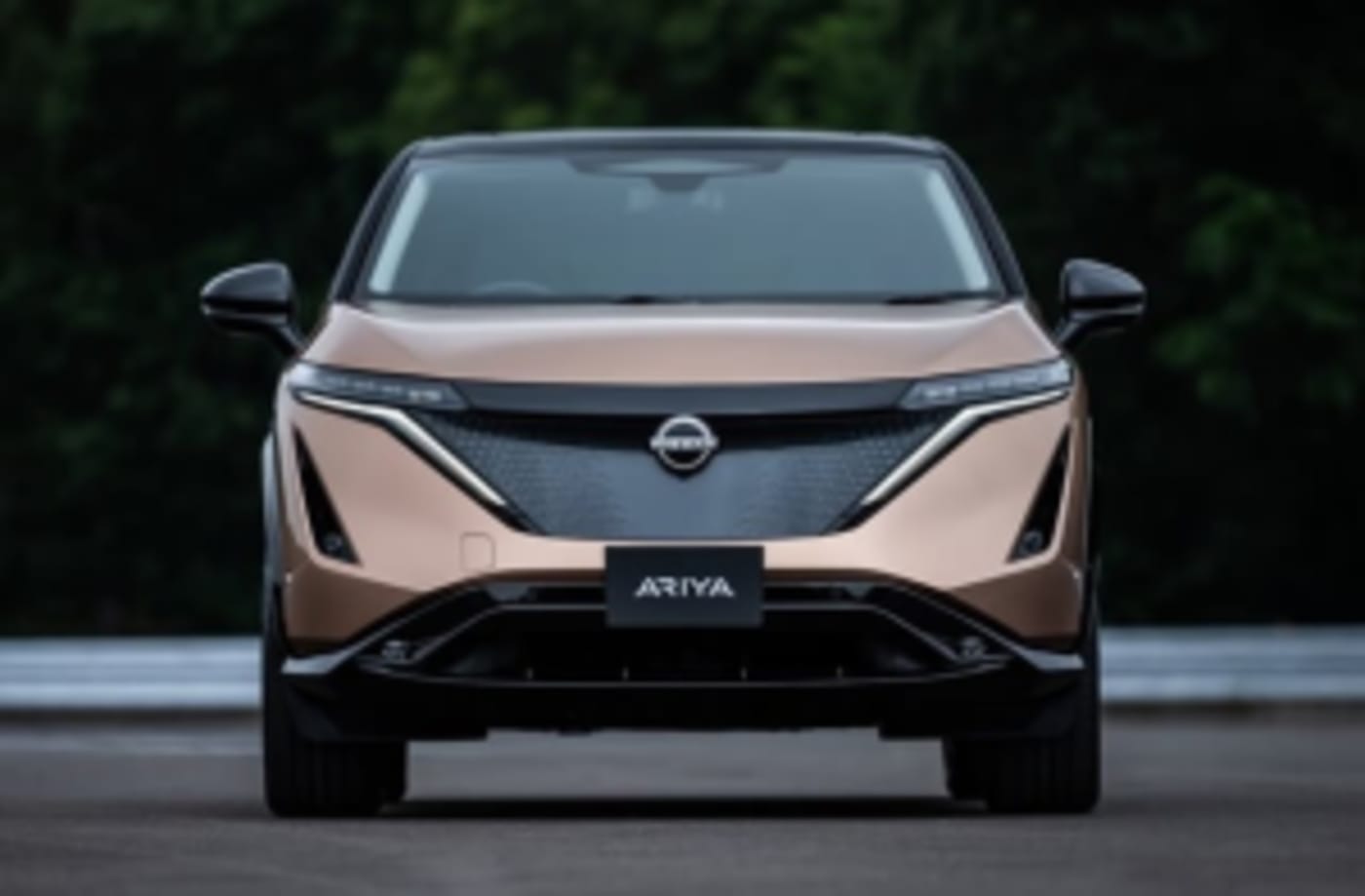
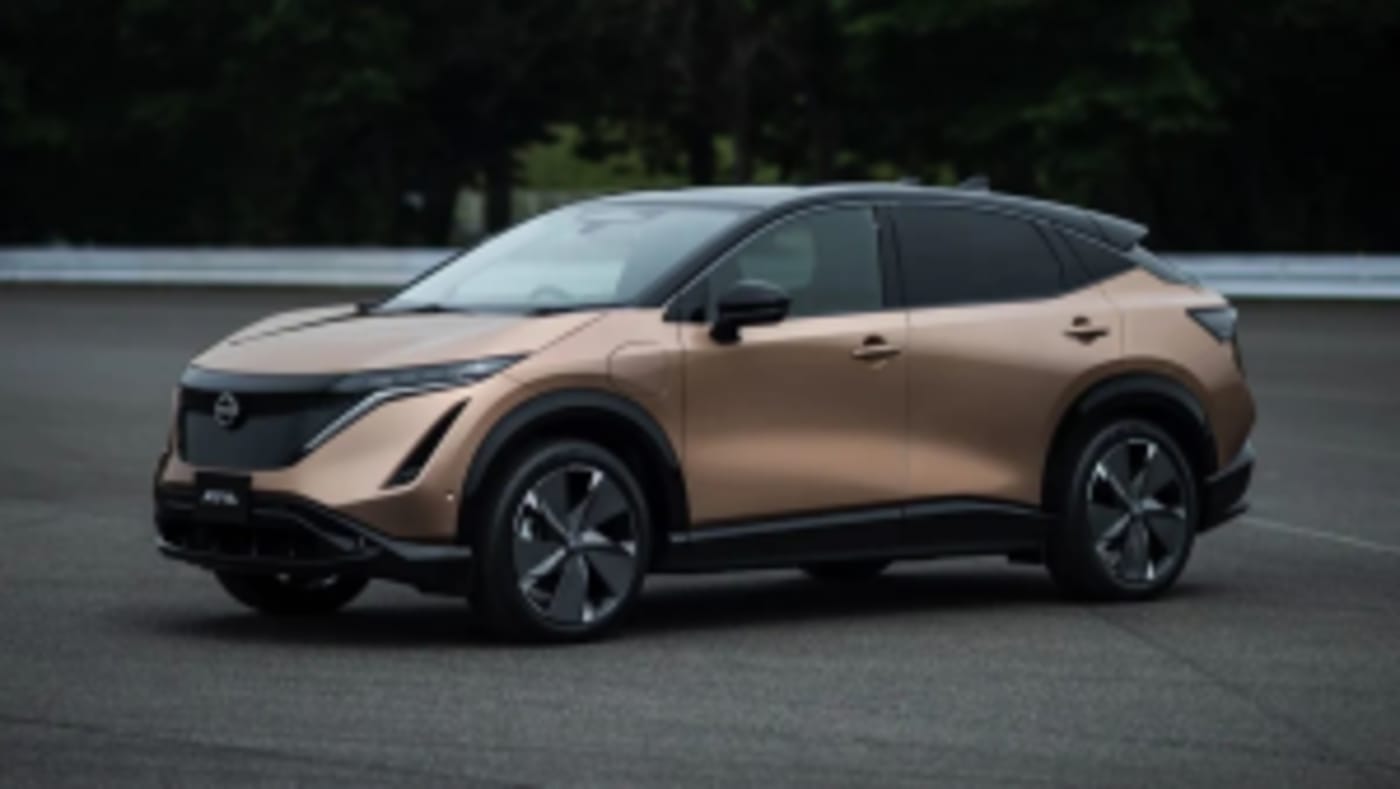
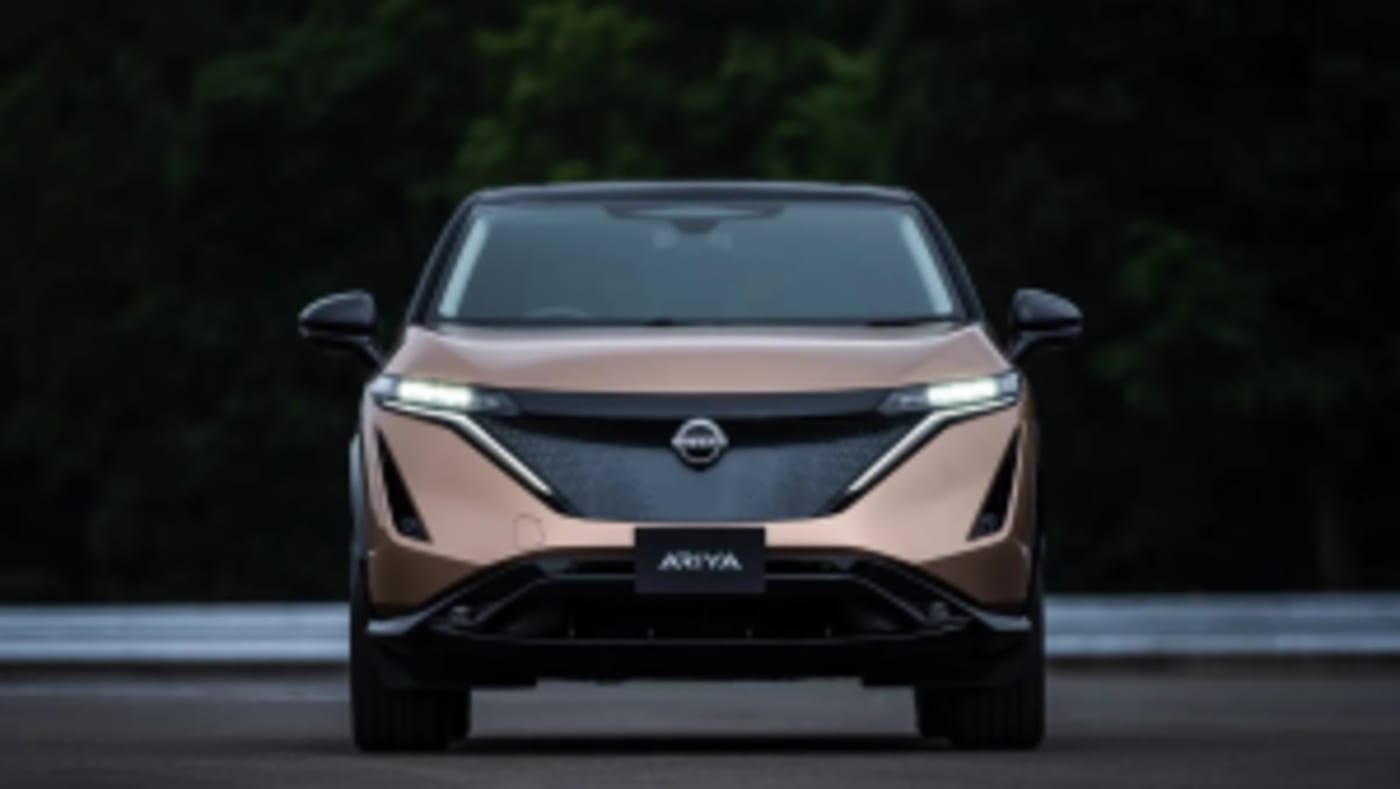
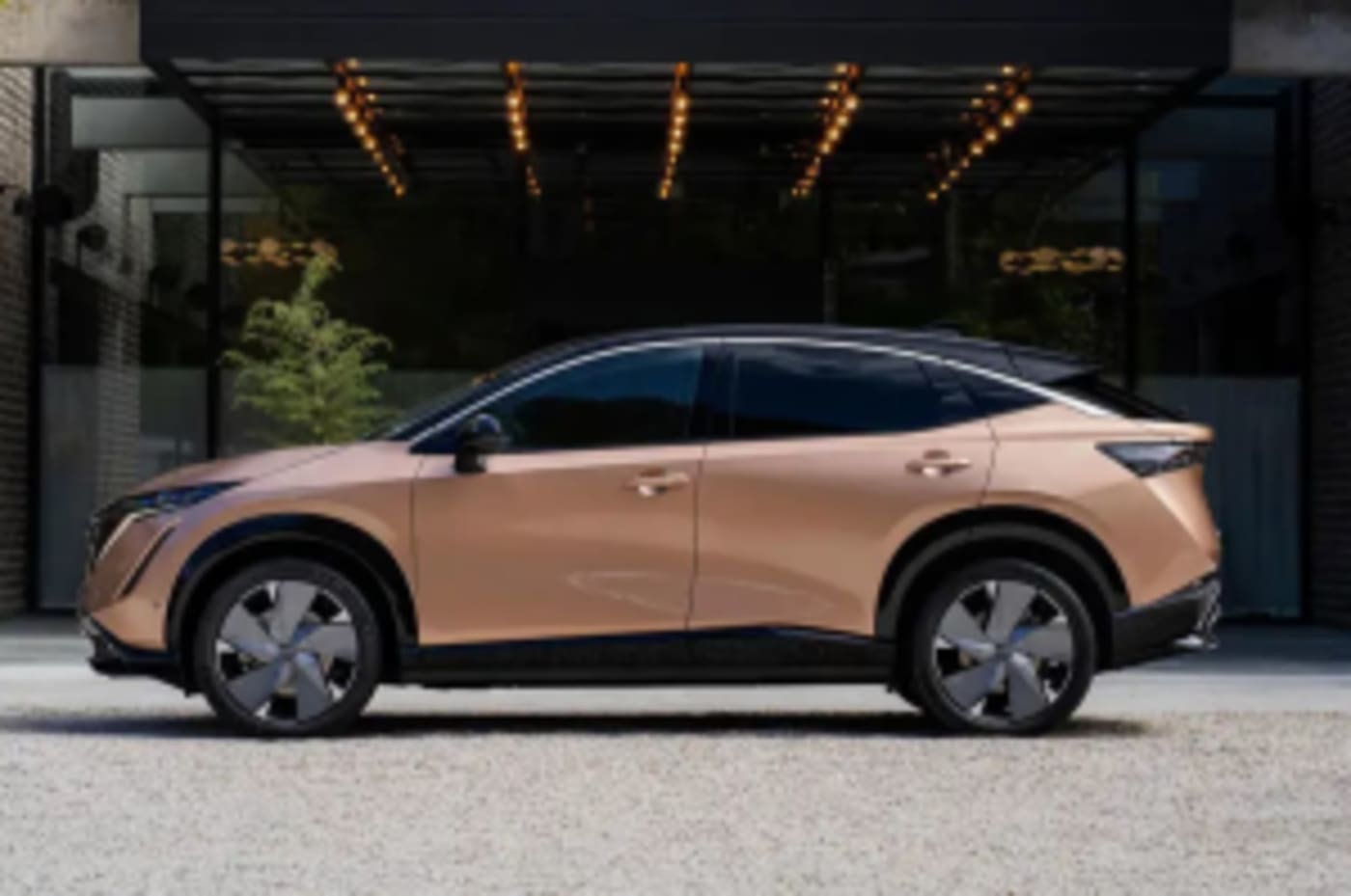
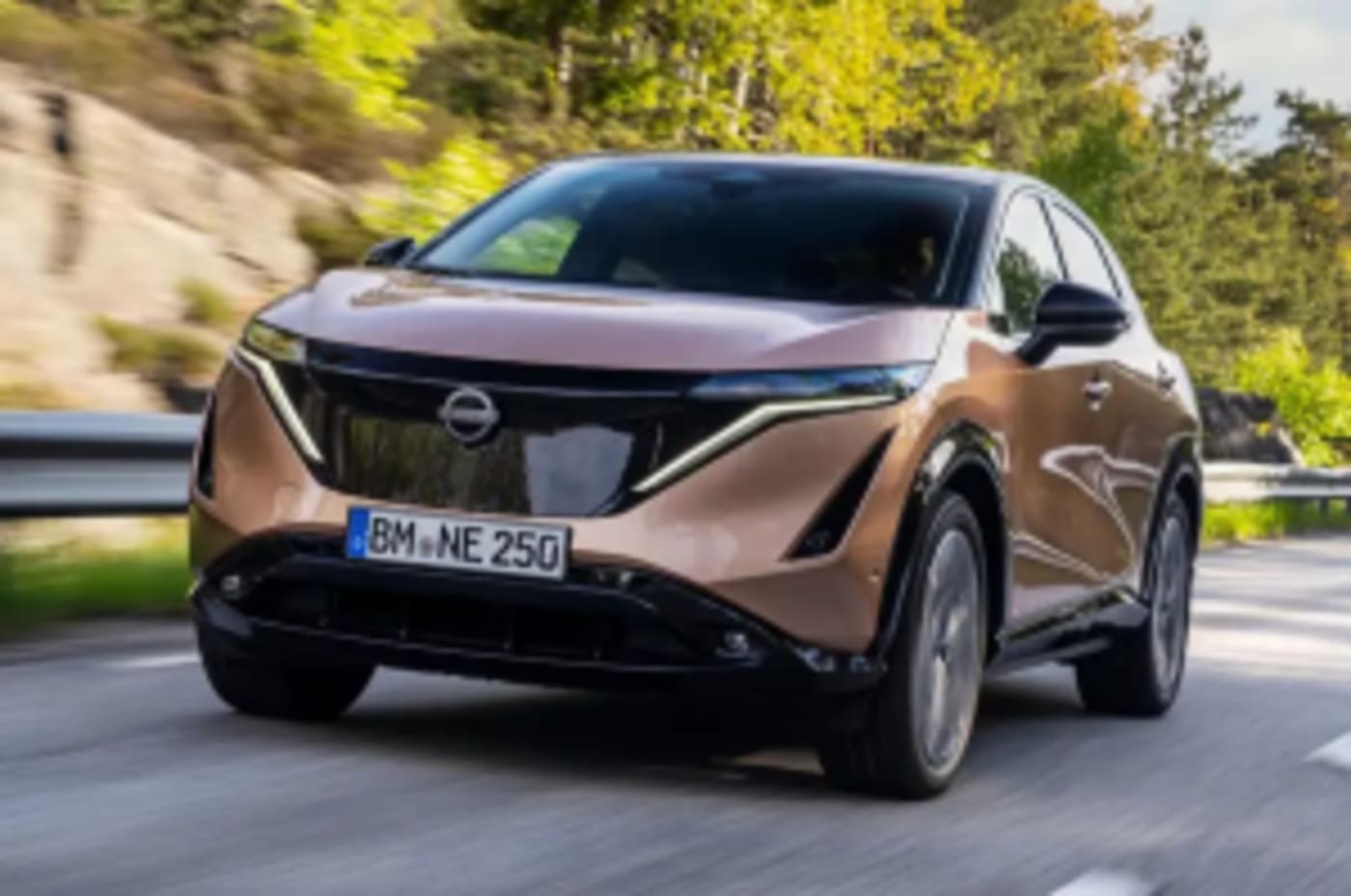
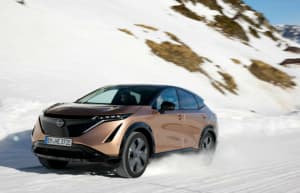

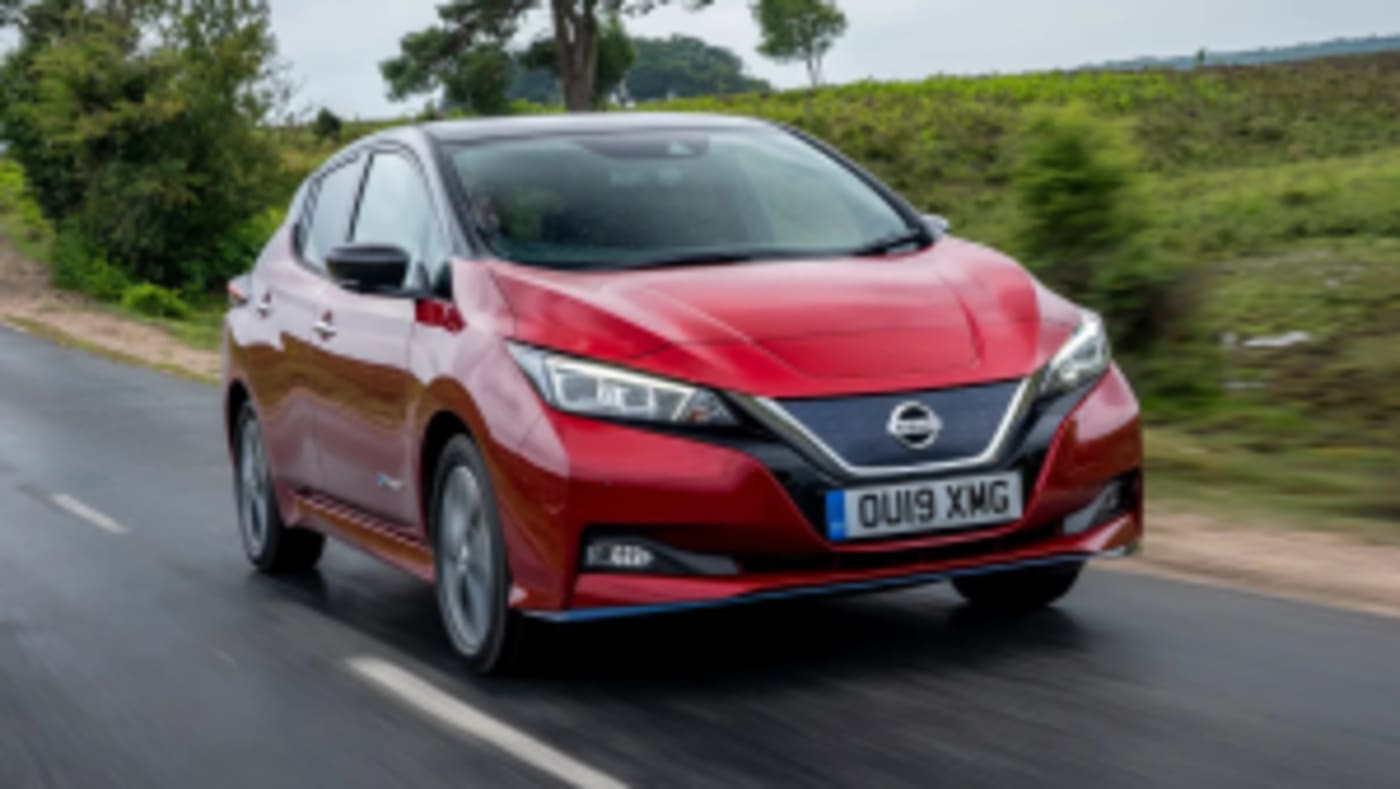
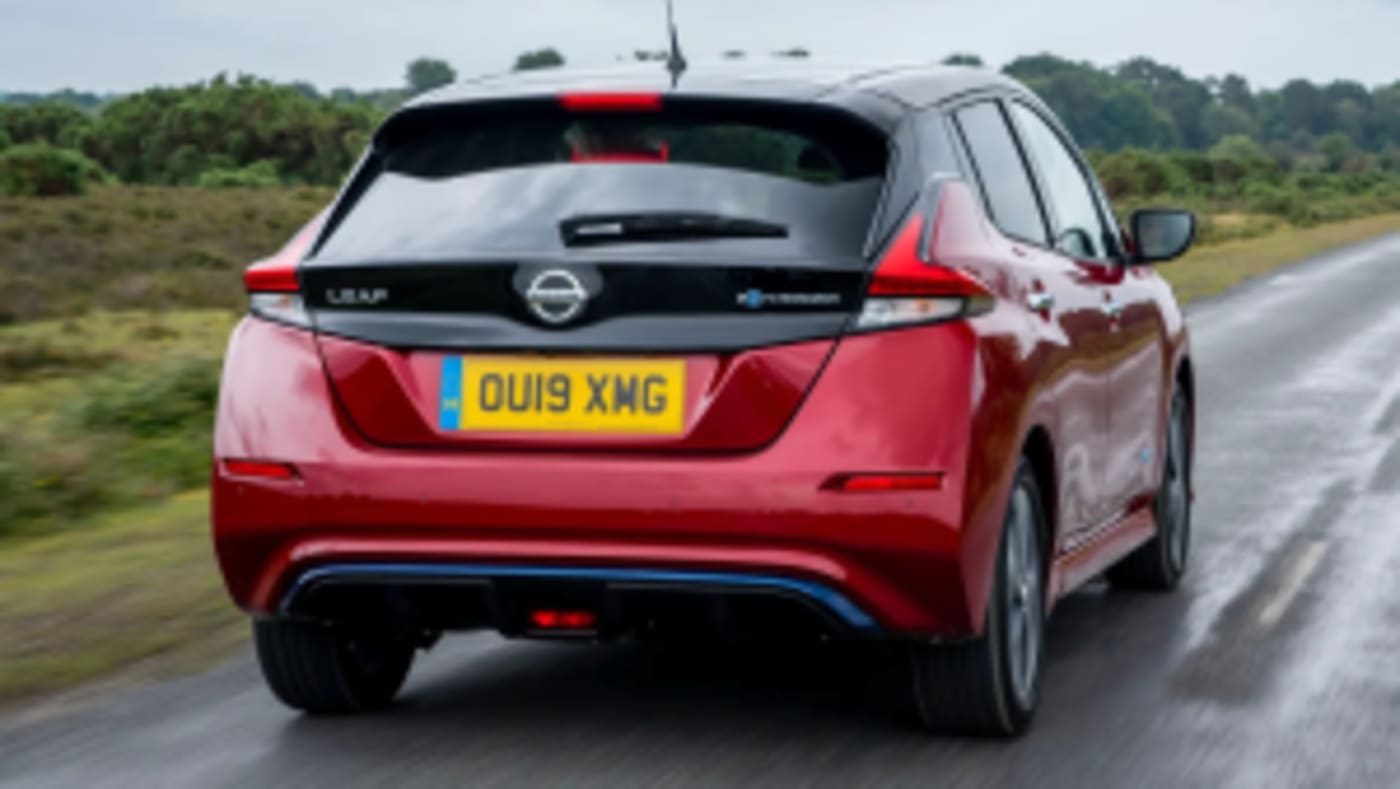

Nissan electric vehicles
Nissan is a Japanese automaker that has been producing electric vehicles since 1997. Nissan is one of the leading EV makers in the world, and it offers a wide range of electric vehicles, including cars, SUVs, and vans.
Nissan is growing rapidly. In 2022, Nissan sold over 450,000 electric vehicles globally, a significant increase over the previous year. Nissan is aiming to sell 1 million electric vehicles per year globally by 2026.
Nissan is successful for a number of reasons. First, Nissan has a long history of producing electric vehicles. This gives Nissan a number of advantages, such as expertise in electric vehicle technology and a strong brand reputation. Second, Nissan offers a wide range of electric vehicles, which gives consumers more choices. Third, Nissan EVs are affordable. This makes them attractive to consumers who are looking for a more affordable alternative to gasoline-powered vehicles.
Here are some of the most popular Nissan electric vehicles:
- Nissan LEAF: The Nissan LEAF is a subcompact electric hatchback that offers a range of up to 226 miles on a single charge. It can accelerate from 0 to 60 mph in 7.9 seconds. The LEAF comes standard with front-wheel drive and a suite of advanced safety features, including automatic emergency braking, lane departure warning, and adaptive cruise control.
- Nissan Ariya: The Nissan Ariya is a midsize electric SUV that offers a range of up to 304 miles on a single charge. It can accelerate from 0 to 60 mph in 5.1 seconds. The Ariya comes standard with all-wheel drive and a suite of advanced safety features, including automatic emergency braking, lane departure warning, and adaptive cruise control.
- Nissan e-NV200: The Nissan e-NV200 is an electric van that offers a range of up to 123 miles on a single charge. It can carry up to 1,400 pounds of cargo. The e-NV200 is a popular choice for businesses and delivery companies.
What makes Nissan EVs different from other brands?+
There are several key factors that make Nissan EVs stand out from the competition:
Pioneering experience: Nissan was one of the first major automakers to fully embrace electric vehicles, launching the iconic Leaf in 2010. This early entry gave them a head start in understanding and refining EV technology, putting them ahead of the curve in some aspects.
Affordability: Compared to many other EVs on the market, Nissan EVs tend to be more affordable. The Leaf, for example, is often one of the cheapest EVs you can buy, making it a viable option for a wider range of consumers.
Focus on practicality: Nissan EVs are designed with everyday use in mind. They offer spacious interiors, comfortable rides, and plenty of cargo space. This makes them a good choice for families and commuters who need a practical and reliable vehicle.
Unique platform: Nissan uses a dedicated EV platform called the CMF-EV for its electric vehicles. This platform is specifically designed for EVs, which gives Nissan engineers more flexibility and allows them to optimize the vehicles for performance and efficiency.
Advanced technology: Nissan is constantly innovating in the EV space. They were one of the first automakers to introduce e-POWER technology, which uses a small gasoline engine to charge the battery, extending the driving range. They are also working on solid-state batteries, which could potentially offer significantly more range and faster charging times.
Focus on sustainability: Nissan is committed to sustainability and reducing its environmental impact. They are investing heavily in renewable energy sources and are working to make their manufacturing processes more eco-friendly.
Of course, it's important to remember that every brand has its own strengths and weaknesses. Ultimately, the best EV for you will depend on your individual needs and preferences. However, there's no doubt that Nissan is a major player in the EV market and their vehicles offer a compelling combination of affordability, practicality, and advanced technology.
Here are some additional things to consider when comparing Nissan EVs to other brands:
- Range: While Nissan's EVs typically have shorter ranges than some of their competitors, they are still sufficient for most everyday driving needs.
- Performance: Nissan EVs are not the fastest or most powerful on the market, but they offer adequate performance for most drivers.
- Charging speed: Nissan EVs are compatible with both DC fast charging and Level 2 AC charging.
- Features: Nissan EVs offer a variety of features, including driver-assistance technologies, infotainment systems, and connectivity options.
What are the different models of Nissan EVs available?+
As of today, December 29, 2023, there are two main Nissan EV models available globally:
1. Nissan LEAF: The LEAF is Nissan's longest-running and most popular electric car. It's a compact hatchback that offers a range of up to 240 miles 386 km on a single charge, depending on the model and battery size. The LEAF is available in a variety of trim levels, with prices starting around $28,000 USD.
2. Nissan ARIYA: The ARIYA is Nissan's newest electric SUV. It's larger and more powerful than the LEAF, with a range of up to 300 miles 483 km on a single charge. The ARIYA is available in a variety of trim levels, with prices starting around $43,000 USD.
In addition to these two main models, Nissan also offers a few other electric vehicles in select markets:
- Nissan e-NV200: A commercial van based on the Nissan LEAF.
- Nissan Sakura: A small electric city car available in Japan.
- Nissan Sylphy Zero Emission: A sedan version of the Nissan LEAF, available in China.
It's important to note that the availability of Nissan EV models can vary depending on the market. For example, the Nissan e-NV200 is not available in the United States.
Here are some additional factors to consider when choosing a Nissan EV:
- Range: How far do you need to drive on a single charge?
- Price: How much can you afford to spend?
- Features: Which features are important to you, such as a sunroof or heated seats?
- Size: How much space do you need?
How much do Nissan EVs cost?+
The starting price of a Nissan Leaf in the US is $28,040- for the base S model with a 40-kWh battery and goes up to $36,040 for the SV Plus model with a 60-kWh battery.
The Leaf Plus has a longer driving range than the base model, and it also comes with some additional features, such as heated seats and a heated steering wheel. Both models are eligible for a federal tax credit of up to $7,500, which can bring the price down even further.
In addition to the Leaf, Nissan also offers the Ariya electric SUV. The Ariya starts at $44,525- and has a driving range of up to 216 miles.
Here is a table that summarizes the starting prices of Nissan's electric vehicles:
| Model | Starting Price | Driving Range |
|---|---|---|
| Leaf S | $28,040 | 151 miles |
| Leaf SV Plus | $36,040 | 212 miles |
| Ariya | $44,525 | 216 miles |
What is the range of Nissan EVs?+
The range of Nissan EVs varies depending on the specific model and trim level. Here's a breakdown to help you navigate:
Nissan Leaf:
- Standard 40 kWh battery: EPA-estimated range of 149 miles.
- Available 60 kWh battery: EPA-estimated range of 212 miles.
- Leaf e+ with larger battery): Up to 385 km (239 miles range according to Nissan Australia website.
Other Nissan EVs:
- Ariya: Up to 304 miles for the base model, with higher ranges for other trims.
- e-NV200: Up to 122 miles.
Important factors affecting range:
- Driving conditions: Highway driving tends to decrease range compared to city driving.
- Weather: Cold weather can significantly reduce range.
- Driving habits: Aggressive acceleration and higher speeds drain the battery faster.
Tips for maximizing range:
- Drive smoothly and avoid rapid acceleration and braking.
- Use eco-driving mode if available.
- Preheat or pre-cool the cabin while plugged in.
- Park in a garage or shaded area to avoid extreme temperatures.
Here are some resources for more specific information:
- Nissan USA website: Link
- Nissan UK website: Link
- Car and Driver review of the 2024 Nissan Leaf: Link
How long does it take to charge a Nissan EV?+
The charging time for a Nissan EV depends on several factors, including:
1. The specific Nissan EV model: Different models have different battery capacities and charging capabilities. For example, the LEAF offers both 40 kWh and 62 kWh battery options, with the larger battery taking longer to charge.
2. The charging level: There are three main charging levels:
- Level 1: Using a standard 120-volt outlet, this is the slowest option, taking around 20 hours for a full charge on a 40 kWh battery.
- Level 2: This uses a 240-volt outlet and is much faster, charging a 40 kWh battery in about 7.5 hours.
- Level 3 DC fast charging: Available at public charging stations, this is the fastest option, reaching 80% charge in roughly 40 minutes for a 40 kWh battery and 60 minutes for a 62 kWh battery.
3. Other factors: Ambient temperature, battery health, and the starting charge level can also impact charging time.
Here's a rough estimate of charging times for a Nissan LEAF with a 40 kWh battery:
- Level 1: 20 hours
- Level 2: 7.5 hours
- Level 3 DC fast charging: 40 minutes to 80%
For a more accurate estimate, you can refer to the owner's manual for your specific Nissan EV model. It will provide details on charging times for different battery capacities and charging levels.
What are the maintenance requirements for a Nissan EV?+
Nissan EVs like the LEAF and ARIYA require less maintenance than traditional gas-powered cars, but they still need some routine upkeep. Here's a breakdown of what you can expect:
Reduced maintenance vs. gas cars:
- No engine oil changes or spark plug replacements: EVs don't have internal combustion engines, so these common service items are eliminated.
- No belts, hoses, or radiators: The simpler electric drivetrain minimizes the need for these components.
- Less wear on brakes: Regenerative braking in EVs helps slow the car down by capturing energy, reducing wear on conventional brakes.
Maintenance still required:
- Tire rotations and replacements: Just like any car, tires need regular rotations and replacements to ensure even wear and optimal performance.
- Brake inspections and replacements: While regenerating braking reduces wear, brakes still need occasional inspections and replacements depending on your driving habits.
- Cabin air filter replacements: Replacing the cabin air filter every 12 months or 15,000 miles ensures fresh air inside your car.
- Battery coolant system: Some models might require coolant system flushes at specific intervals, as outlined in your owner's manual.
- Software updates: Nissan may release software updates for your EV over time, which can be done at dealerships or through over-the-air updates.
Additional considerations:
- Nissan EV Carefree+ program: New MY23+ Nissan EVs come with a complimentary 3-year/36,000-mile Scheduled Prepaid Maintenance Agreement PMA, covering the essential maintenance mentioned above.
- Driving conditions and habits: Harsh driving conditions or frequent fast charging can affect battery health and potentially increase maintenance requirements.
- Refer to your owner's manual: The specific maintenance schedule and intervals for your Nissan EV model will be detailed in your owner's manual. It's essential to follow the manufacturer's recommendations to ensure optimal performance and warranty coverage.
Overall, Nissan EVs offer significantly lower maintenance costs compared to gas-powered cars.- However, some routine upkeep is still necessary to keep your EV running smoothly and safely. By following the guidelines above and referring to your owner's manual, you can enjoy the benefits of low-maintenance electric driving.
Does Nissan offer any tax credits or incentives for purchasing an EV?+
Yes, Nissan offers both federal and dealership incentives for purchasing an EV, but the actual amount you can receive depends on several factors, including:
1. The specific Nissan EV model you're considering:
- 2024 Nissan LEAF: This is the only Nissan EV currently eligible for a partial federal tax credit of $3,750. This offer applies to purchases and deliveries made through December 31, 2023.
- Other Nissan EVs: Currently, other Nissan EVs like the Ariya and e-POWER models do not qualify for the full federal tax credit. However, the Inflation Reduction Act may introduce new credit opportunities for other models starting in 2024, so it's worth staying updated.
2. Your eligibility for the federal tax credit:
- Income thresholds: Your modified adjusted gross income MAGI must fall below certain limits to qualify for the full credit. For individual filers, the limit is $75,000, and for joint filers, it's $150,000.
- Previous EV purchases: There's a lifetime cap of $7,500 on the electric vehicle credit per taxpayer.
3. Local dealership incentives:
- Nissan dealerships might offer additional rebates or discounts on EVs. These programs vary depending on location and availability.
Here are some helpful resources to learn more about Nissan EV incentives:
- Nissan EV Incentives Page: Link
- Consumer Reports EV Tax Credit Guide: Link
- IRS Electric Vehicle Tax Credit Information: Link
Remember, consulting with a tax advisor can help you understand your specific eligibility for the federal tax credit and other potential tax benefits of purchasing an EV.
What is the warranty on a Nissan EV?+
Nissan EVs have several warranty coverages, so it depends on what specific part or aspect you're interested in. Here's a breakdown:
Basic Vehicle Warranty:
- Covers all parts and components except EV system for 3 years or 100,000 km, whichever comes first.
EV System Warranty:
- Covers all EV-specific components like battery, electric motor, and inverter for 5 years or 100,000 km, whichever comes first.
Lithium-Ion Battery Warranty:
- Covers battery replacement if capacity falls below 9 bars out of 12 on the gauge for 8 years or 100,000 miles may vary depending on model and region.
Corrosion Warranty:
- Covers perforation from rust for 6-12 years depending on the model.
Paintwork Warranty:
- Covers paint defects for 3 years.
Roadside Assistance:
- Includes towing, flat tire changes, lockouts, jump starts, and emergency fuel delivery for 3 years or 36,000 miles.
Optional Extended Warranties:
- Nissan offers additional warranties for added peace of mind, extending coverage beyond the standard terms.
Please note: This information is intended as a general overview and may vary depending on specific Nissan EV model, location, and date of purchase. For the most accurate and up-to-date warranty details, I recommend checking your owner's manual, contacting your local Nissan dealer, or visiting the official Nissan website for your region.
Where can I learn more about Nissan EVs?+
There are several great ways to learn more about Nissan EVs:
Official Nissan Resources:
- Nissan USA website: The official Nissan website has a dedicated section for electric vehicles, where you can find detailed information about each model, including specs, features, driving range, warranty, and available trims. You can also build and price your own Nissan EV, find dealerships in your area, and learn more about EV ownership in general. Here's the link: Link
- Nissan EV brochures: You can download brochures for specific Nissan EV models from the Nissan website. These brochures provide a concise overview of the vehicle's key features and specs.
- Nissan EV test drives: Many Nissan dealerships offer test drives of their EVs. This is a great way to get behind the wheel and experience firsthand how an EV drives. You can contact your local Nissan dealership to schedule a test drive.
Other Resources:
- Car review websites: Several websites offer in-depth reviews of Nissan EVs. These reviews can be a good source of information about the pros and cons of each model, as well as comparisons to other EVs on the market. Some popular car review websites include:
- Kelley Blue Book: Link
- Edmunds: Link
- Consumer Reports: Link
- YouTube videos: There are many YouTube videos that review Nissan EVs. These videos can give you a more visual experience of the vehicles and show you how they perform in different conditions.
- Electric vehicle forums and communities: There are many online forums and communities dedicated to electric vehicles. These can be a great place to ask questions, get advice from other EV owners, and learn more about the latest news and developments in the EV world.
Here are some additional tips for learning more about Nissan EVs:
- Consider your needs and budget: Think about what you need from an EV in terms of range, size, features, and price. This will help you narrow down your choices and focus on the Nissan models that are a good fit for you.
- Read reviews and comparisons: Read reviews and comparisons of different Nissan EV models to get a sense of their strengths and weaknesses.
- Ask questions: Don't be afraid to ask questions of Nissan salespeople, EV owners, and other experts. The more you know, the better decision you can make about whether an Nissan EV is right for you.





































